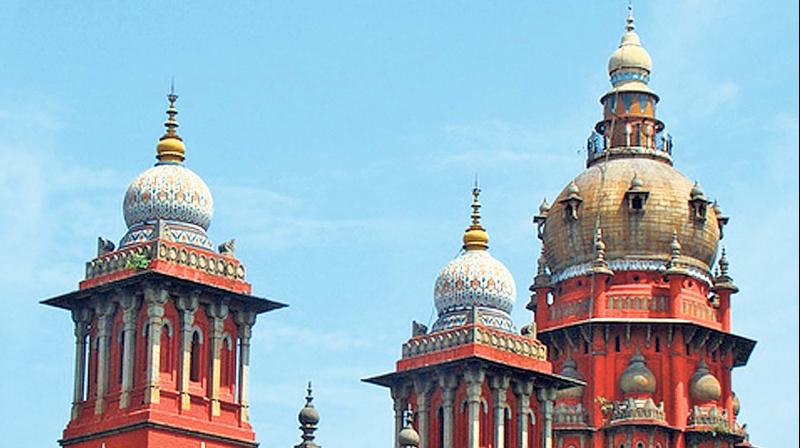Plea against condition imposed by President rejected

Chennai: Pointing out that the power conferred on the President of India under Article 72 of the Constitution to grant pardons, reprieves, respites or remission of punishment or to suspend, remit or commute the sentence of any person convicted of any offence, is of the widest amplitude, the Madras high court has dismissed the petitions from 3 accused, challenging the condition imposed by the President of India while granting clemency to them, wherein the death sentence was commuted to life sentence with a condition that they should remain in prison for the whole of the remainder of their natural lives and without being entitled to be considered for remission of the term of imprisonment.
Justice N.Anand Venkatesh dismissed the petitions filed by Radhakrishnan, C. Selvam and Sheik Meeran. The petitioners were convicted and sentenced to death by judgment dated October 5, 1998, by the principal sessions judge, Tirunelveli. Their appeals and SLPs were dismissed by the Madras high court and Supreme Court. Thereafter, on their mercy petitions, the President granted clemency and commuted the death sentence to life imprisonment with the above condition.
The judge said the President of India has the constitutional power to attach conditions while granting pardon/clemency. The President of India by imposing such a condition would have taken into consideration the merits of the case and the recommendation given by the Ministry of Home Affairs, independently, the judge added.
The judge said the Supreme Court by virtue of the judgment in Swamy Shraddananda Vs.State of Karnataka, came up with formalization of a special category of sentence. It became necessary for the Supreme Court to carve out this special category of sentence since a life sentence, prescribed as a punishment under section 302 IPC, normally comes to an end at the expiry of 14 years since power to commute sentence by the appropriate government can be exercised under section 433 Cr.P.C after 14 years in cases of sentence of imprisonment for life. The Supreme Court felt that in many cases where the offence was heinous, the sentence of 14 years imprisonment would amount to no punishment at all and at the same time, death penalty can be given only in rarest of rare cases and the case on hand may not fall in that category. In order to handle such cases, it became necessary for the Supreme Court to come up with a special category of sentence, the judge added.
The judge said it was clear from the judgments that the Supreme Court found a good and strong basis for the court to substitute a death sentence by life imprisonment and direct that the convict must not be released from the prison for the rest of his life or for a particular term, as specified in the order. “This court does not find anything wrong in the President of India coming to a similar conclusion considering the merits of the case. That does not in any way tantamount to the executive arrogating to itself a judicial power”, the judge added.
The judge said, “This court does not find any arbitrariness or unreasonableness in the decision making process adopted by the President of India. The President of India was well within his powers to impose conditions while granting pardon. The condition formed part and parcel of the package in favour of the petitioners while commuting their death sentence. The petitioners are estopped from questioning the condition and at the same time take advantage of the commutation of death sentence to life imprisonment”.

